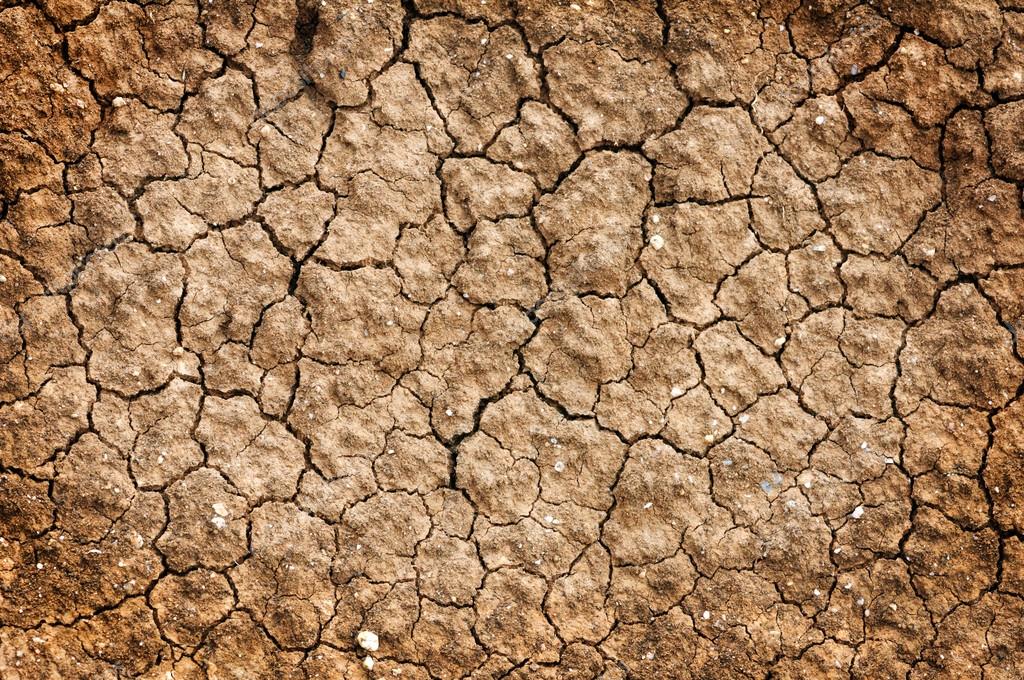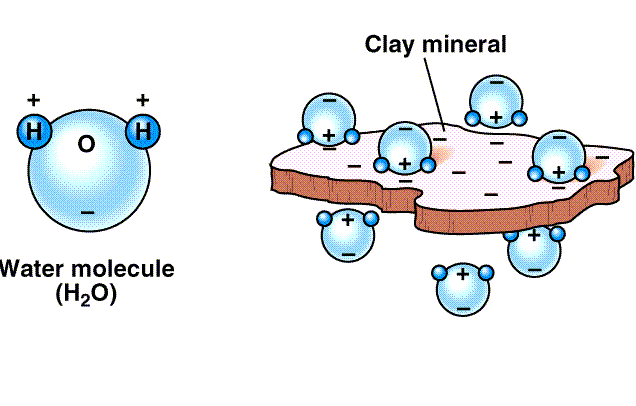Hey all! Sorry I haven't posted in a while. I've been studying hard in horticulture school and I'm starting to learn some wonderful nuggets of information that are valuable to all of you plant growers out there. The topic I'll talk a little about today is clay soils. I'm not going to bore you too much I hope, but if you're dealing with clay soils in your garden this article may be of use to you.

Just as introduction, the form of clay I am referring to is the soil particle size specified by the Department of Agriculture. The Dept of Ag ranks soil particles by their size, starting with the smallest particles which are clay (next biggest is silt, then sand, then gravel). Soils that are made up of mostly tiny clay particles make life tough for folks who are trying to work the soils and plant in them. They tend to compact, get really sticky, heavy, and they get saturated by water and don't drain well. I have a class on soil science this semester, and it is fascinating how much science there really is to why clay soils act the way they do. Chemistry is at work in clay soils and as I've taken a closer look at what's going on, I've debunked a belief of my own that I had before about clay. Here it is:
"Clay soils are good for water loving plants" - It seems obvious that a plant that needs copious amounts of water would like to be on a heavily clay soil because clay retains water. That's actually not always true. Clay soils can be just as bad as sandy or rocky soils for having an available supply of water for plant roots because of the chemistry that is going on between the clay particles and the water in the soil. BASICALLY what happens is this. Clay particles are covered in negatively charged ions which attract the positive ions of water molecules. The water and clay bind to each other tightly in a process called "adhesion" and make it very difficult for plant roots to suck the water away from the clay. So even though a clay soil can hold a ton of water without draining it, the water is "unavailable" water for the plants growing in it.

But there's hope! Clays can be amended in several ways, but the best way is with organic matter, ideally compost. There's a LOT of chemistry that happens as well when organic matter is introduced into a soil, but for our purposes I'll just mention how organic matter can free up the water in clay so plants can suck it up more easily. When organic matter is broken down and consumed by the tiny micro organisms in soils, certain chemicals and proteins are secreted in the process. Some of these chemicals have glue like attributes and they actually can bind a bunch of clay particles together into larger aggregates. These larger aggregates open up space in the soil for water to move more freely and decrease the surface area that water can get bound up on. There's a multitude of other benefits that organic matter bring to soil, but this one is one that most gardeners don't know about and it's really valuable to know if you're dealing with clay.
Hope this helps, stay tuned for more garden hacks as I get nerdy about plant and soil science!
As a clay land farmer, I agree with you completely!
Adding organic matter is critical.
Another aspect is also keeping a living root in the soil.
The longer a plant can be kept growing is mostly subject to you local climate.
Integrate biomass (compost or mulch) and keep a live plant growing as long as practical.
Downvoting a post can decrease pending rewards and make it less visible. Common reasons:
Submit
Thanks for your response @torquewrench1969! Always good to have folks truly dealing with these situations weigh in. Good luck to you on your farm!
Downvoting a post can decrease pending rewards and make it less visible. Common reasons:
Submit
I learned someting new...thank you.
One day I will be doing some gardening, and I'll need all the help I can get.
Downvoting a post can decrease pending rewards and make it less visible. Common reasons:
Submit
nice post... piece of advice, quote the sources you use, maily the for the images!
Downvoting a post can decrease pending rewards and make it less visible. Common reasons:
Submit
Makes total sense!!! Thanks for this!!!🙏🏽
Downvoting a post can decrease pending rewards and make it less visible. Common reasons:
Submit
Congratulations @brownsgreens! You have received a personal award!
Click on the badge to view your Board of Honor.
Do not miss the last post from @steemitboard:
SteemitBoard World Cup Contest - The results, the winners and the prizes
Downvoting a post can decrease pending rewards and make it less visible. Common reasons:
Submit
Congratulations @brownsgreens! You received a personal award!
You can view your badges on your Steem Board and compare to others on the Steem Ranking
Vote for @Steemitboard as a witness to get one more award and increased upvotes!
Downvoting a post can decrease pending rewards and make it less visible. Common reasons:
Submit